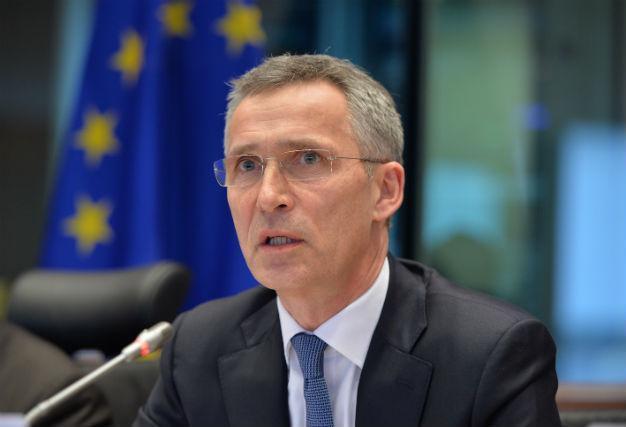Russian build-up in Syria worries NATO
KUWAIT – Reuters

AA photo
A fragile truce in Syria appeared to be largely holding on its third day but NATO remains concerned by a Russian military build-up in Syria, alliance Secretary-General Jens Stoltenberg said Feb. 29.“We are concerned,” Stoltenberg said during a news conference in Kuwait, “about the significant Russian military build-up we have seen in Syria with the ground troops, with the naval forces in the eastern Mediterranean and with air forces conducting air strikes.”
The NATO chief said Russian air strikes had “mainly targeted” non-jihadist rebels rather than the Islamic State of Iraq and the Levant (ISIL), which has also been targeted by a U.S.-led coalition.
The cessation of hostilities deal, which took effect early Feb. 27, is the first of its kind to be attempted in five years. Syria’s conflict began in 2011 following unrest elsewhere in the Arab world.
The deal, which is less binding than a formal cease-fire and was not directly signed by Syria’s warring government and rebel forces, does not cover action against militants from ISIL or the Nusra Front, an al-Qaeda affiliate. Russia and Syria have said they would continue to target the two groups and also other terrorist organizations.
“We have seen some encouraging developments that the cease-fire is largely holding but at the same time we have seen some reports about violations of the cease-fire,” Stoltenberg said.
“This agreement and the full implementation of the agreement is the best possible basis for renewing the efforts to find a political negotiated peaceful solution to the crisis in Syria,” he added.
Meanwhile, countries sponsoring the Syria peace process met in Geneva on Feb. 29 amid complaints that a new cessation of hostilities deal was quickly unravelling, with France demanding information about reports of persisting attacks on rebel positions.
U.N. Secretary-General Ban Ki-moon said Feb. 29 that the cessation arrangement was holding by and large but the peace group, meeting for the first time since the pact took force, was trying to ensure fresh clashes did not spread.
“We have received indications that attacks, including by air, have been continuing against zones controlled by the moderate opposition,” French Foreign Minister Jean-Marc Ayrault told reporters at the U.N. Human Rights Council in Geneva. “All this needs to be verified. France has therefore demanded that the task force charged with overseeing the cessation of hostilities meet without delay.”
Russia’s TASS news agency quoted Alexey Borodavkin, Russia’s ambassador in Geneva, as saying the task force meeting was previously planned. “The Russian and United States militaries are in constant contact and in actual fact conducted meetings over the weekend,” he said.
“As of now I can tell you that by and large the cessation of hostilities is holding even though we have experienced some incidents,” Ban told reporters in Geneva.
And in an encouraging sign, aid workers began the first aid delivery since the deal came into effect, the Syrian Arab Red Crescent said on Feb. 29.
Ten trucks carrying blankets and hygiene supplies entered rebel-held Moadamiyet al-Sham, encircled by government forces, and another 41 were to follow on Feb. 29.
U.N. humanitarian coordinator Yacoub El Hillo said he hoped the relative calm would allow aid to be distributed to 154,000 besieged people over the next five days.
Pressure was building to relieve civilians under siege after the U.N.’s human rights chief said thousands could die of hunger.
“The deliberate starvation of people is unequivocally forbidden as a weapon of warfare. By extension, so are sieges,” Zeid Ra’ad al-Hussein was quoted as saying by AFP, warning that “thousands of people risk starving to death.”
















